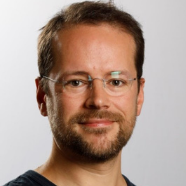
Martin Dresler is Associate Professor for Cognitive Neuroscience at Radboud University Medical Center, and Principal Investigator of Sleep & Memory Lab at the Donders Institute for Brain, Cognition and Behavior, Nijmegen. He has a background in biopsychology, philosophy and mathematics at Ruhr University in Bochum. During his PhD at Philipps University in Marburg and at the Max Planck Institute of Psychiatry in Munich, he studied the role of sleep in memory consolidation in psychiatric patients. During his postdoctoral research at the Max Planck Institute of Psychiatry, Oxford University and Stanford University, he investigated the neural basis of metacognition during sleep and the behavioral and neural effects of short- and long-term mnemonic training and other cognitive enhancement strategies. Martin is an elected member of the Young Academy of the German National Academy of Sciences, where he works in particular on ideas to reform dysfunctional structures of international research funding systems.
The research of my group centers on the neuroscience of sleep and memory, and in particular on biological and cognitive functions of human sleep: why do we spend a third of our lives in a helpless state, with our senses shut off from a potentially dangerous environment? Beyond basic and clinical research questions, several research lines of my group investigate ‘brain hacking’ strategies: how can technological or behavioral innovations modulate normal neural processes of sleep and memory, thereby enhancing/optimizing their function, and which potential adverse effects might this tinkering with naturally evolved biological processes show? For example, we investigate how mnemonic strategy training leads to a strong increase in durable memories, associated with more efficient neural coding, thereby driving brain connectivity towards pattern seen in the world’s leading memory athletes. In a different research line, we investigate strategies to enhance metacognition during sleep, a phenomenon known as ‘lucid dreaming’, study its underlying neural processes, and demonstrate that this phenomenon allows to transfer cognitive neuroscience tasks into the sleep state. In addition, we investigate new soft- and hardware options to study sleep beyond the typically small samples constrained by classical sleep lab settings, e.g. develop/validate sleep EEG wearables and dedicated analysis pipelines for both small and large datasets.